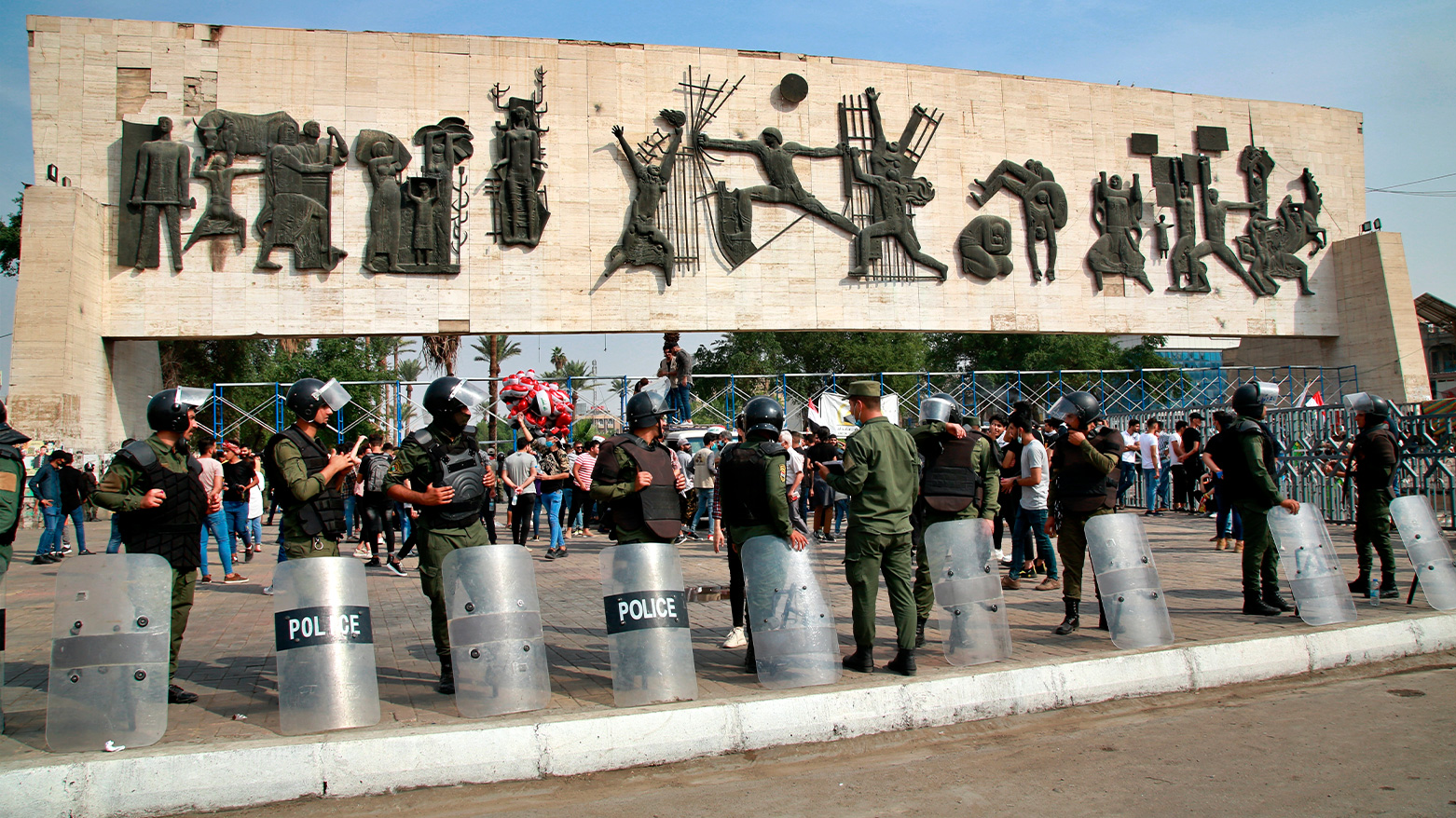Public Sector Boils Over: Baghdad Faces Mass Unrest
A source said Tourism Ministry staff plan a major protest in Baghdad, demanding pay rises like those sought by teachers in Sunday’s strike.

By Kamaran Aziz
ERBIL (Kurdistan24) – Iraq’s capital is bracing for a wave of coordinated public sector unrest as employees of the Ministry of Tourism and Antiquities prepare to stage a major demonstration in Baghdad this week, following a sweeping nationwide strike by teachers and Ministry of Education staff.
The coordinated protest movements reflect growing frustration over salaries, working conditions, and the erosion of basic employment rights among some of Iraq’s most vital professional sectors.
According to a source speaking to local media on condition of anonymity, coordination committees representing Ministry of Tourism and Antiquities employees are finalizing plans to stage a large demonstration in Baghdad. Their core demand centers on salary increases—mirroring demands voiced by teachers and education personnel during Sunday’s nationwide strike.
The source warned that if these demands are not met, employees of the Ministry of Tourism and Antiquities are prepared to shut down antiquities directorates across the provinces and suspend their professional duties entirely. The action would significantly disrupt the preservation and administration of Iraq’s ancient heritage sites, many of which are already under threat from neglect, conflict, and environmental degradation.
In a parallel move, the Iraqi Association of Archaeologists submitted a formal statement to the Presidency of the Republic, the Prime Minister’s Office, the Council of Representatives, and the Ministries of Culture and Antiquities, calling attention to the worsening economic and professional circumstances of Iraqi archaeologists.
The statement underscores a deepening sense of marginalization among these workers, who play a critical role in preserving Iraq’s world-renowned archaeological legacy.
The association stressed that archaeologists are often exposed to harsh working environments and occupational hazards, including toxic chemicals, collapsing structures, and dangerous excavation conditions. Despite these risks, archaeologists receive no danger pay or professional hazard compensation. The statement further revealed that many have been forced to leave the Ministry for other sectors, draining the field of much-needed expertise.
Among the key demands submitted by the association are: official recognition of hazard and professional allowances under the authority of the Council of Ministers; improved living standards tied to qualifications and job roles; and access to residential land and long-term loans—benefits already afforded to staff in other ministries. Notably, the association pointed out that archaeologists have not received land allocations since the 1950s.
This growing unrest follows Sunday’s powerful general strike by teachers and Ministry of Education staff in all Iraqi provinces. The strike was called by the Coordination Committee for the Teachers’ Strike, which issued a statement demanding salary increases, the recognition of long-denied rights, and parity between educational service law and university service in terms of salaries, allowances, and entitlements.
Despite the Ministry of Education issuing orders for mandatory attendance and affirming its commitment to completing the academic calendar, the strike went ahead, signaling deep discontent and a readiness to challenge institutional directives.
The teachers’ demands include salary adjustments based on academic degrees, scientific titles, and family-related allowances such as transportation, marital status, and children. The Coordination Committee accused the government of longstanding negligence and injustice toward the country’s educators.
Together, these demonstrations represent a powerful groundswell of discontent among Iraq’s public sector workers—particularly those whose professions uphold the cultural and educational foundations of the nation. As archaeologists and teachers take to the streets in pursuit of equity and dignity, the government now faces intensifying pressure to respond with more than just promises.
With protest momentum growing, the coming days may prove decisive in determining whether the Iraqi government can meet the demands of its civil servants—or face a deeper crisis of confidence within its bureaucratic institutions.